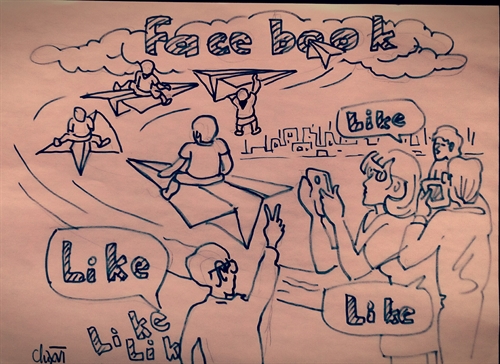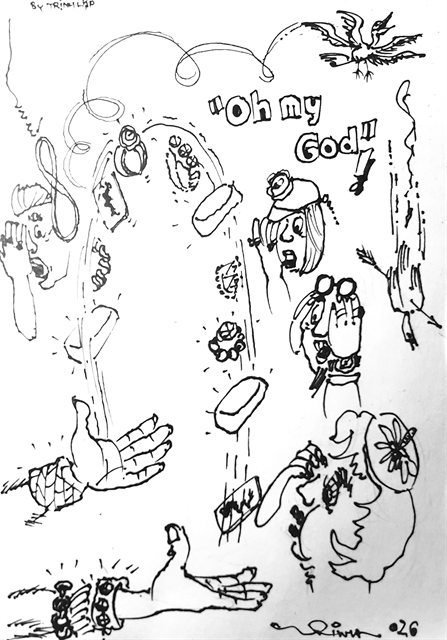 |
| No caption |
Viet Nam News Bích Hường
HÀ NỘI – Many parents are considering changing their habits and refraining from posting photos of their children on social networks like Facebook in anticipation of the new Child Law, which would classify some cases as a violation once it takes effect in June 2017.
The law, for the first time, addresses child cyber protection and aims to prevent and curb child abuse in which offenders use public images and information posted online.
Under the law, Việt Nam bans the publication of personal information and photos of children without permission from their parents/custodians and the children themselves if they are over the age of seven.
Posting photos of children online could unwittingly put those children at risk, Deputy Minister of Labour, Invalid and Social Affairs Đào Hồng Lan said at a press conference to introduce the law.
Hà Nguyễn, a Facebook user from Hà Nội and mother of a 10-month-old baby, said she was addicted to taking photos of her daughter and sharing them on her Facebook page almost every day.
“It’s like a daily joy when I post the photos, seeing her cute manners and reading compliments from others,” she said.
“I only share the photos with my friends and family member. Could the action harm my babies? Is she at risk? Would I be violating the law?” Hà questioned after learning about the new Child Law.
Couples who live far away from their hometowns said Facebook became a channel connecting their kids to relatives living in their hometowns.
More than just a phone call, Facebook posts and photos help to show kids’ daily activities and special events in a more vivid way, they said, adding that family members feel closer to them despite geographic distance.
Phạm Đức Minh, a fifth grader in Hà Nội, said he liked having his photos taken and posted on Facebook, but only the nice ones.
“I don’t like being made fun of because of bad photos,” he said.
Further complicating matters, many parents, like Hà, share photos of nude or half-nude babies. The parents consider them to be treasured memories, but not everyone likes to see these photos publicised, especially the children themselves when they grow up.
Let alone, what could happen if the photos are seen by paedophiles?
Đặng Hoa Nam, head of the ministry’s Department of Child Protection and Care, said that publicised images and information including children’s names, addresses and schools could help offenders more easily reach the children via the Internet and eventually in person.
However, he said not all posts containing child’s images or information were necessarily bad or considered a violation of the law.
He said that before posting anything relating to kids, parents should ask themselves two questions: Do the images or information present too much and exploit the feelings/privacy of the children? Are the posts for the benefit and development of the children?
Deputy president of the HCM City Psycho-Pedagogical Association Trần Công Bình said parents should be equipped with more knowledge and skills regarding the publication of child images and information so that they can make informed decisions for their kids.
They should not only give kids a straightforward explanation of cyber risks, but also stop posting kids’ personal information and images online, Bình said.
Jay Parikh, a vice president of Facebook, told the Daily Telegraph that the network was considering setting up a system to warn parents who post photographs of their children online without restricting their privacy settings.
He explained “If I was putting online a photo of my kids playing in the park, and I accidentally shared it with everyone, the system could say: ‘Hey, wait a minute, this is a picture of your children. Usually you only send them to members of your family. Are you sure you want to do this?’” -- VNS
 Talk Around Town
Talk Around Town






